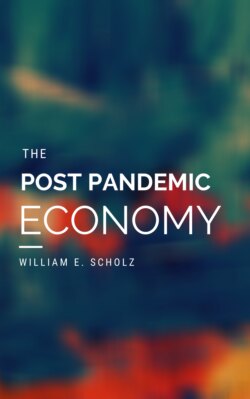Читать книгу The Post Pandemic Economy - William E. Scholz - Страница 13
На сайте Литреса книга снята с продажи.
Curtail Reporting Requirements For Small Business and Investors
ОглавлениеThe current regulatory landscape for finance is a quagmire of licensure and reporting. Many Republicans seek to cut the red tape for the American business, but rarely address licensure requirements for financial professionals. Licensing requirements for financial professionals are some of the most barbaric, restrictive, and onerous requirements of any sector. Not surprisingly, a liberal financial elite operating out of New York City imposes these restrictions onto the backs of every day American business owners operating on Main Street. Financial regulations prevent the American worker from creating security instruments to sell shares of their company to investors. Further, regulations prevent the American Investor from investing in their local economy or having more control over their own market investment accounts.
Three regulations need cut. There are numerous regulatory efforts in various stages of the legislatory process. Our proposal below, for simplicity's sake, considers the outcomes required to accelerate the capability of small business owners and investors to renovate their own neck of the woods.
1 The "accredited investor" definition should be altogether eliminated. In today's economy, investors possess enough information and know-how to invest online. The accredited investor definition is turning investors toward unregulated investment markets such as cryptocurrencies and donation-based crowdfunding instead of concrete investment into employment generating small business.
2 All startups receiving equity investment can operate completely (Federal, State, and Local) tax free for a period of three years. Additional tax benefits should be put in place for startups to facilitate up to seven years of growth.
3 The Opportunity Zone tax incentive should be scaled up to a national incentive that is applied to all privately held firms regardless of location. Currently, The Opportunity Zone tax incentive can be utilized in specified "Zones" decided upon at the State level to include disadvantaged neighborhoods and business districts. Scaling up the Opportunity Zone does two things. First, it allows investors to invest freely and second, it enables small business owners to operate remotely. Currently Opportunity Zone rules eliminate remote firms that operate from an individual's home, assuming that home is not located in an Opportunity Zone.
Together, eliminating these regulations will coordinate with capital inflow from the National Capital Bank to urgently recapitalize the nation's small business markets. The Nation cannot spare increasing economic regulation during a time of renovation. Time is of the essence!
